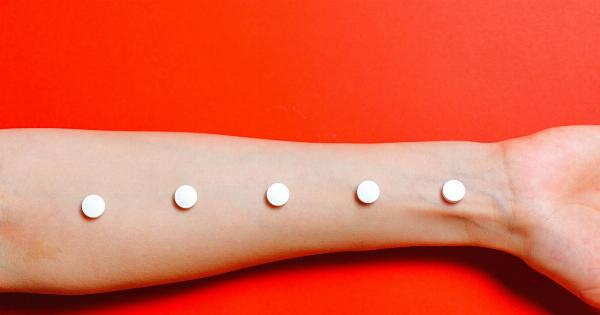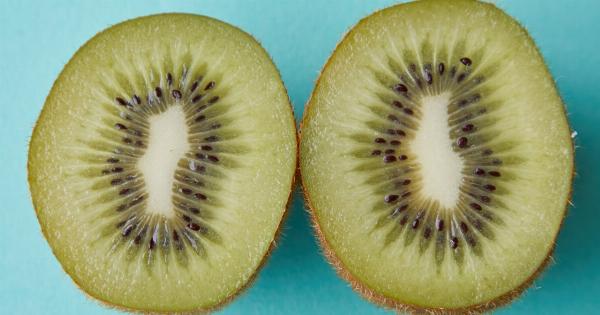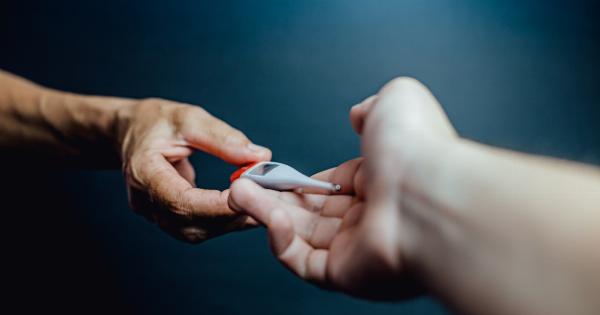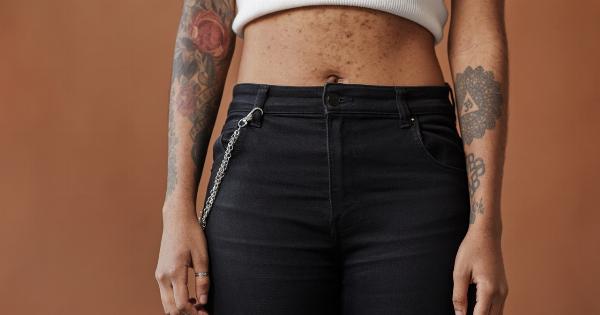Are you constantly scratching your head due to an itchy scalp? If so, you’re not alone. Many people experience the discomfort and frustration of an itchy scalp at some point in their lives.
But what causes this unpleasant sensation? In this article, we will explore the various factors that may be responsible for your itchy scalp and discuss possible treatment options.
Allergic Reactions and Skin Conditions
Allergies can cause itching on the scalp, just like they can affect other parts of the body. If you have recently switched shampoos or hair products, it is possible that you may be experiencing an allergic reaction to one of the ingredients.
Common culprits include fragrances, dyes, and preservatives.
In addition to allergies, various skin conditions can lead to an itchy scalp. These conditions include:.
1. Dandruff
Dandruff is a common scalp condition characterized by flaking skin. The exact cause of dandruff is not fully understood, but it is believed to be related to an overgrowth of a yeast-like fungus called Malassezia.
Dandruff can be easily managed with over-the-counter medicated shampoos containing ingredients like zinc pyrithione or ketoconazole.
2. Psoriasis
Psoriasis is a chronic autoimmune disease that causes the rapid build-up of skin cells. This build-up leads to red, itchy, and scaly patches on the scalp and other parts of the body.
Treatment options for scalp psoriasis include topical medications, phototherapy, and oral medications.
3. Seborrheic Dermatitis
Seborrheic dermatitis is a common inflammatory skin condition that primarily affects the scalp, causing redness, itching, and flaking. It often occurs in areas with a high concentration of sebaceous glands, such as the scalp and face.
Over-the-counter shampoos containing ingredients like coal tar, salicylic acid, or ketoconazole can help control seborrheic dermatitis.
4. Eczema
Eczema, also known as atopic dermatitis, can affect the scalp and cause itching, redness, and dryness. It is a chronic condition that often runs in families and is associated with allergies and asthma.
Treatment for scalp eczema includes moisturizers, topical corticosteroids, and antihistamines to relieve itching.
Infections and Infestations
Itchiness on the scalp can also be a result of various infections and infestations:.
5. Head Lice
Head lice infestation is a common problem, especially in children. The presence of lice and their eggs can cause intense itching and discomfort.
Specialized medicated shampoos and thorough combing with a fine-toothed nit comb can help eliminate head lice.
6. Fungal Infections
Fungal infections of the scalp, such as tinea capitis, can cause itching along with redness, scaling, and hair loss. These infections are more common in children but can affect adults as well.
Antifungal medications, either topical or oral, are typically used to treat fungal scalp infections.
7. Bacterial Infections
Bacterial infections like folliculitis and impetigo can also lead to an itchy scalp. Folliculitis occurs when hair follicles become infected, resulting in pustules and redness.
Impetigo is a highly contagious bacterial skin infection that can affect the scalp and other areas. Antibiotics are usually prescribed to treat bacterial scalp infections.
Skin Irritation and Dry Scalp
External factors can cause irritation and dryness of the scalp, leading to itching:.
8. Harsh Hair Products
Using hair products that contain harsh chemicals, such as sulfates or alcohol, can strip the scalp of its natural oils and cause dryness and itching.
Opting for milder, sulfate-free shampoos and avoiding excessive use of styling products may alleviate scalp irritation.
9. Overwashing
Washing the hair too frequently can strip away the natural oils that keep the scalp moisturized. This can result in dryness and itching. Experts recommend washing the hair every two to three days to maintain a healthy balance.
10. Environmental Factors
Environmental factors, such as cold weather, low humidity, and excessive heat or sun exposure, can contribute to scalp dryness and itching. Protecting the scalp with hats or scarves and using moisturizing products can help prevent these issues.
When to Seek Medical Help
In most cases, an itchy scalp can be managed with over-the-counter treatments or lifestyle changes.
However, if your itching persists, is severe, or is accompanied by other concerning symptoms like hair loss, sores, or swelling, it is important to seek medical help. A dermatologist can evaluate your scalp, diagnose any underlying conditions, and recommend appropriate treatment.
Remember, itchy scalps can have various causes, and finding the right treatment may require some trial and error. Patience and consistency with recommended treatments are key to finding relief from the itchiness and discomfort.





























